Distinguished Fellows
This year, the Distinguished Fellow Award was presented to 10 physicians who are clinical and research fellows in a rheumatology fellowship training program and who have performed meritoriously.
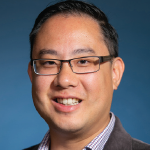 Ever since he was a medical student, Jonathan TL Cheah, MBBS, now an assistant professor of medicine in the Department of Rheumatology at UMass Memorial Health Care and the University of Massachusetts Medical School, Worcester, has been interested in bone. During his rheumatology fellowship at the Hospital for Special Surgery, N.Y., over the past three years, he led the development of a bone health patient registry and served as the fellow for the OMERACT Glucocorticoid Impact Special Interest Group, which involved investigation related to patients’ perspectives on the effects of systemic glucocorticoids.
Ever since he was a medical student, Jonathan TL Cheah, MBBS, now an assistant professor of medicine in the Department of Rheumatology at UMass Memorial Health Care and the University of Massachusetts Medical School, Worcester, has been interested in bone. During his rheumatology fellowship at the Hospital for Special Surgery, N.Y., over the past three years, he led the development of a bone health patient registry and served as the fellow for the OMERACT Glucocorticoid Impact Special Interest Group, which involved investigation related to patients’ perspectives on the effects of systemic glucocorticoids.
This project, to be presented at OMERACT 2020, aims to develop a core domain set of glucocorticoid effects to be measured in clinical trials. His other research investigated the use of magnetic resonance imaging as a modality for the opportunistic screening of poor bone quality, which earned him a 2019 Young Investigator Travel Grant award from the American Society for Bone and Mineral Research.
Dr. Cheah earned his medical degree from University College London in 2010. His medical school research project entailed studying the effects that different chemotherapeutic agents used in the treatment of osteosarcoma have on bone progenitor cells. He did his postgraduate training at Southampton General Hospital in Hampshire, England, where he spent four months as an academic foundation trainee in the University of Southampton’s MRC Lifecourse Epidemiology Unit.
He received a postgraduate certificate in medical education and completed residency training in internal medicine at Montefiore Medical Center, New York. During his residency, he received Program Innovation and Outstanding House Officer in Internal Medicine awards.
In 2016, Dr. Cheah joined the ACR and has served as a fellow-in-training member on the Committee on Corporate Relations, as well as a CARE question writer, most recently contributing to the osteoporosis and metabolic bone diseases and crystal arthritis sections.
“This award recognizes everything achieved up to the current day and credits all the individuals at different institutions who have supported me throughout these projects,” says Dr. Cheah. “The ACR is very welcoming of junior members, encouraging us to serve on committees.”
Currently, Dr. Cheah is working with colleagues to develop the osteoporosis clinical services at UMass Memorial Health Care, which in time, will provide patient access to a multi-disciplinary team, including rheumatologists, physical therapists, dietitians and radiologists, and also drive research projects.
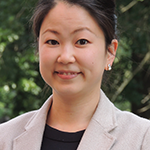 Sarah Chen, MD, MPH, a postdoctoral research fellow in the Division of Pharmacoepidemiology and Pharmacoeconomics at Brigham and Women’s Hospital, attended her first ACR/ARP Annual Meeting in 2012, when she was in medical school.
Sarah Chen, MD, MPH, a postdoctoral research fellow in the Division of Pharmacoepidemiology and Pharmacoeconomics at Brigham and Women’s Hospital, attended her first ACR/ARP Annual Meeting in 2012, when she was in medical school.
“It was very exciting,” she says, adding that she’s impressed by the ACR’s ability to reach out to trainees in rheumatology to take advantage of mentorship opportunities early in their career. “That’s when I knew I was in the right field.”
Dr. Chen, also an associate physician in the Division of Rheumatology, Inflammation and Immunity at Brigham and Women’s Hospital, graduated from the David Geffen School of Medicine at the University of California, Los Angeles, in 2012. She completed her internal medicine residency four years later at Beth Israel Deaconess Medical Center, Boston. Earlier this year, she finished her rheumatology fellowship training at Brigham and Women’s Hospital and also earned a Master of Public Health at the Harvard T.H. Chan School of Public Health.
During her fellowship training, Dr. Chen studied the epidemiology of cardiovascular diseases in SLE under the mentorship of Karen Costenbader, MD, MPH, professor and director of the Lupus Program at Harvard Medical School, and participated in pharmacoepidemiology projects under the mentorship of Seoyoung Kim, MD, associate professor of medicine at Brigham and Women’s Hospital.
Dr. Chen’s projects demonstrated low rates of cardiovascular disease preventive care in patients with SLE and high risk of heart failure in lupus patients compared to patients without lupus. She also studied the risk of infections in abatacept users compared with tumor necrosis factor inhibitors in patients with RA, using propensity score matched analysis. She researched the use of prescription opioid analgesics in patients with rheumatic diseases, finding higher rates among patients with RA, SLE and psoriatic arthritis—and the highest rates in patients with ankylosing spondylitis (AS)—compared with age- and sex-matched controls.
Since then, she has learned methods in epidemiology and biostatistics for regression, survival analysis and propensity scores to design, analyze and publish these studies in respected medical journals.
As part of the ACR’s rheumatology fellows initiative, Dr. Chen helped deliver educational seminars at community clinics throughout 2016 and 2017 to raise awareness of the importance of early detection and referral for patients with SLE. She also contributes articles to the SLE newsletter at Brigham and Women’s Hospital’s Lupus Center to educate SLE patients on cardiovascular disease prevention.
She’s humbled by this award and plans to spend the next several years of her career as a pharmacoepidemiology researcher.
“I want to study the effectiveness and safety of drugs used in patients with rheumatologic diseases,” says Dr. Chen. “The ACR is a great platform for clinical research.”
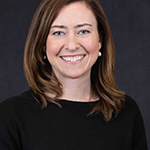 Dana DiRenzo, MD, MHS, finished her fellowship in rheumatology at Johns Hopkins, Baltimore, earlier this year and then joined the university faculty as an instructor of medicine in the Division of Rheumatology at Johns Hopkins University. She is interested in patient wellness and certified in mindfulness and meditation. Currently, she’s studying how mindfulness may improve coping and positively impact symptoms and disease activity related to autoimmune disease.
Dana DiRenzo, MD, MHS, finished her fellowship in rheumatology at Johns Hopkins, Baltimore, earlier this year and then joined the university faculty as an instructor of medicine in the Division of Rheumatology at Johns Hopkins University. She is interested in patient wellness and certified in mindfulness and meditation. Currently, she’s studying how mindfulness may improve coping and positively impact symptoms and disease activity related to autoimmune disease.
As a 2019 Jerome L. Greene Foundation Scholar, funding through this foundation helped support her two studies with active enrollment: an office-based mindfulness program and a smartphone-based mindfulness meditation program.
She is engaged in patient-reported outcomes research in inflammatory arthritis, Sjögren’s syndrome and myositis under the guidance of her primary mentor, Clifton O. Bingham III, MD, professor of medicine and director of the Johns Hopkins Arthritis Center. At the 2019 ACR/ARP Annual Meeting, she had two poster presentations related to healthcare utilization for those with RA and quality of life for those with Sjögren’s syndrome.
“I’m analyzing several cohorts at Johns Hopkins, particularly Sjögren’s syndrome and rheumatoid arthritis,” she says. “I’m looking at their patient-reported outcomes related to quality of life. This also gives insight with regard to whether an intervention like mindfulness may improve outcomes.”
Dr. DiRenzo received her medical degree from the Lewis Katz School of Medicine at Temple University in 2013. Three years later, she completed her residency in internal medicine at the University of Maryland Medical Center, Baltimore. In 2018, she obtained a master’s in health science in clinical investigation from the Johns Hopkins Bloomberg School of Public Health.
Dr. DiRenzo joined the ACR in 2012. Over the past several years, she has held various volunteer positions. From 2017–18, she served on the Scientific Advisory Council for the Rheumatology Research Foundation and presently serves on the Quality of Care Committee.
As an organization, the ACR is an “excellent networking mechanism,” she says, that enables her to meet and work with different collaborators. She describes the ACR as a “great” patient advocate and “terrific” educational resource for her patients who cope with different rheumatic diseases. “To be recognized by such an outstanding organization means a lot to me. I’m taken aback by the recognition of my efforts.”
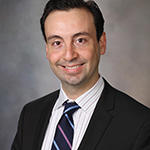 Ali Duarte-Garcia, MD, assistant professor of medicine in the Division of Rheumatology at the Mayo Clinic, Rochester, Minn., completed his fellowship training at the Mayo Clinic earlier this year and is now pursuing a master’s in clinical and translation science at the Mayo Clinic Graduate School of Biomedical Sciences.
Ali Duarte-Garcia, MD, assistant professor of medicine in the Division of Rheumatology at the Mayo Clinic, Rochester, Minn., completed his fellowship training at the Mayo Clinic earlier this year and is now pursuing a master’s in clinical and translation science at the Mayo Clinic Graduate School of Biomedical Sciences.
During Dr. Duarte’s rheumatology fellowship, he received the Rheumatology Research Foundation 2017 Marshall J. Schiff, MD, Memorial Fellow Research Award for his work on antiphospholipid syndrome epidemiology.
Dr. Duarte currently holds multiple positions at the Mayo Clinic: senior associate consultant, co-director of the lupus and antiphospholipid syndrome clinics in the Rheumatology Division and scholar at the Mayo Clinic Robert D. and Patricia E. Kern Center for the Science of Health Care Delivery.
He has had a long-standing clinical and research interest in SLE and antiphospholipid syndrome. His research has shown that cognitive dysfunction in lupus is a non-inflammatory syndrome and that lupus flares have a seasonal variation. He analyzed the predictors of proteinuria in patients with SLE and recently published the first study describing the epidemiology of antiphospholipid syndrome in the general population.
Dr. Duarte received his medical degree in 2010 from the Universidad Autónoma de Chihuahua, Mexico, and then continued his training in the U.S. After completing his residency in internal medicine in 2015 at Tufts Medical Center, Boston, he received the Rheumatology Research Foundation Preceptorship Award.
He vividly remembers attending his first ACR/ARP Annual Meeting while still in medical school in 2009. “The ACR has given me so many opportunities that resulted in me getting this award,” he says. “I was just blown away by that Annual Meeting. I was inspired by the researchers and clinicians who wrote papers that I had previously read.”
Dr. Duarte says he has received many valuable experiences while serving as a member of the ACR’s Committee on Registries and Health Information Technology and Committee on Communications and Marketing. His work has been published in Arthritis and Rheumatology, JAMA Internal Medicine and Annals of Internal Medicine.
Earlier this year, he collaborated with Seeker, an online network that’s part of Discovery Digital Networks, to create a video about lupus. Since May, he says it has been viewed more than 100,000 times.
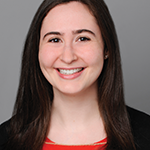 Rebecca Haberman, MD, clinical instructor and postdoctoral research fellow in the Division of Rheumatology at NYU Langone Health, New York, earned her medical degree in 2014 from the New York University School of Medicine. She remained at the school to complete her internal medicine residency in 2017 and rheumatology fellowship earlier this year.
Rebecca Haberman, MD, clinical instructor and postdoctoral research fellow in the Division of Rheumatology at NYU Langone Health, New York, earned her medical degree in 2014 from the New York University School of Medicine. She remained at the school to complete her internal medicine residency in 2017 and rheumatology fellowship earlier this year.
Last year, she was recognized by the school’s internal medicine residents as Rheumatology Fellow of the Year and selected to serve as the chief fellow of rheumatology. In that role, she organized the academic schedule, oversaw junior fellows and worked closely with division leadership on all aspects of the fellowship program. To further her research endeavors, she was awarded the medical school’s T32 research training grant and received the National Psoriasis Foundation Early Career Research Grant in 2019.
For the past two years, she has researched psoriatic arthritis under the mentorship of Jose Scher, MD, assistant professor, director of NYU Langone Health’s Psoriatic Arthritis Center.
While honing her clinical and research skills, Dr. Haberman was accepted to New York University’s School of Medicine master’s program in clinical and translational research, where she is currently completing her second year and serves as a clinical instructor in the Division of Rheumatology.
“Ever since I was in medical school, I have been encouraged by my mentors early on to go into rheumatology. I also liked the idea of having long-term relationships with my patients,” says Dr. Haberman. “To be recognized by the ACR in this way reinforces that I made the right decision and that the work I’m doing means something to my patients and rheumatology.”
Since completing her residency, Dr. Haberman has helped design and develop a database that includes epidemiologic data from more than 500 psoriatic arthritis patients. She is currently leading a prospective cohort study focusing on the progression of disease from psoriasis to psoriatic arthritis and has developed a passion for teaching, giving lectures to students and residents, and mentoring upcoming rheumatology fellows.
As a member of the ACR for just two years, Dr. Haberman has already felt its impact.
“The organization has really helped me further my education and meet people with similar interests from all over the country, not just at one institution,” she says. “I have formed collaborations with diverse people who are in different fields than me and lend unique research perspectives.”
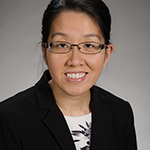 Jean Liew, MD, is a rheumatology fellow at the University of Washington School of Medicine, Seattle, where she is also pursuing a Master of Science in epidemiology under the direction of Susan Heckbert, MD, PhD, a clinical epidemiologist.
Jean Liew, MD, is a rheumatology fellow at the University of Washington School of Medicine, Seattle, where she is also pursuing a Master of Science in epidemiology under the direction of Susan Heckbert, MD, PhD, a clinical epidemiologist.
After graduating from the University of Texas Medical Branch at Galveston in 2014, Dr. Liew completed her internal medicine residency at Oregon Health & Science University, Portland, in 2017. Dr. Liew says she was inspired by one of her mentors at the university, Jennifer Barton, MD, an associate professor of medicine in the Division of Arthritis and Rheumatic Diseases, to pursue a career in clinical research.
Dr. Liew’s first project focused on co-morbid post-traumatic stress disorder in veterans with AS, which led to research on cardiovascular disease and risk factors in AS under the mentorship of Lianne Gensler, MD, director of the Ankylosing Spondylitis Clinic at the University of California, San Francisco, and co-investigator of the Prospective Study of Outcomes in Ankylosing Spondylitis cohort.
She studied the association of continuous non-steroidal anti-inflammatory drug use and the development of incident hypertension in this cohort. She will be using this cohort and population-level data to further research the association of other AS treatments with cardiovascular events, such as myocardial infarction or risk factors.
“I very much appreciate this recognition of my work in the clinical and research realm,” says Dr. Liew. “It’s gratifying to know that what I’ve been working so hard on has proven to be research that has potential.”
Dr. Liew has published papers targeting gout management in multi-morbid individuals and also mentored students, residents and junior fellows in writing case reports. Her future work will involve collaboration with experts at other universities on casual inference projects.
She is a member of the Spondyloarthritis Research and Treatment Network and the Assessment of Spondyloarthritis International Society. She has received grant funding from both organizations and is currently funded by a NIH T32 training grant through the Division of Rheumatology at the University of Washington School of Medicine.
Dr. Liew joined the ACR in 2016. “It was a fantastic opportunity to meet people who have been productive and successful in performing research, see what the field of rheumatology was all about and meet people who could potentially serve as my role models,” she says.
After completing her fellowship, she plans on continuing her clinical research and practice and pursuing an academic position.
“I wouldn’t be at this point in my career without sponsorship and strong female mentors who open doors for me,” says Dr. Liew. “Mentorships are so important. That’s what’s underlying all of my accomplishments.”
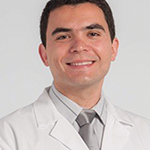 Mazen Nasrallah, MD, MSc, a graduate assistant in medicine, Division of Rheumatology, Allergy and Immunology at Massachusetts General Hospital, completed his rheumatology fellowship in 2019 at Massachusetts General Hospital.
Mazen Nasrallah, MD, MSc, a graduate assistant in medicine, Division of Rheumatology, Allergy and Immunology at Massachusetts General Hospital, completed his rheumatology fellowship in 2019 at Massachusetts General Hospital.
During his rheumatology fellowship, Dr. Nasrallah’s interests in translational medicine inspired him to join the labs of Alexandra-Chloé Villani, PhD, assistant professor, Department of Medicine, and director, MGH Single Cell Genomics Research, and Andrew Luster, MD, PhD, chief, Division of Rheumatology, Allergy and Immunology, at Massachusetts General Hospital. In this role, Dr. Nasrallah examines the clinical spectrum of inflammatory arthritis occurring as a complication of cancer immunotherapy with checkpoint inhibitors and defines the cellular and molecular perturbations that characterize these toxicities using single-cell genomic technologies.
He graduated from medical school in 2010 from the University of Jordan, Amman. The following year, he earned a master’s in immunology at King’s College London. In 2013, he completed a T32 postdoctoral research fellowship at Stanford University, Calif., where he worked on computational drug repositioning in psoriasis and the re-analysis of flow cytometry data from the RAVE clinical trial. In 2016, he completed his internal medicine residency at the Cleveland Clinic.
Since 2017, Dr. Nasrallah has served as a member of the Severe Immunotherapy Complications Steering Committee at Massachusetts General Hospital and has also been involved in educating patients suffering from immunotherapy complications through patient advocacy, meeting presentations and patient educational material. He participated in the musculoskeletal examination teaching session for first-year Harvard Medical School students and rheumatology ambulatory teaching sessions for junior and senior residents in internal medicine at Massachusetts General Hospital.
Meanwhile, he is breaking ground in a new rheumatology field. He’s researching why lifesaving cancer treatments are causing some cancer patients to develop inflammatory arthritis and other rheumatic complications.
“So far, a small community of rheumatologists is studying these patients,” says Dr. Nasrallah, also an instructor in medicine at Harvard Medical School. “While it’s a great honor to be recognized by the ACR for my work during my fellowship, this award could help me connect with other researchers in this area.”
Dr. Nasrallah’s academic knowledge has grabbed attention in other ways. In 2017, his team won the Knowledge Bowl competition and captured second place last year. He was awarded the 2019 Rheumatology Research Foundation Scientist Development Award to pursue clinical and translational research in the Rheumatic Complications of Immunotherapy.
“This award is a validation of my research efforts and education,” he says. “It also means that I did a good job during my fellowship and made my mentors happy.”
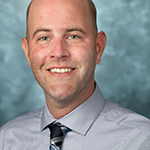 In June, Brian Nolan, MD, finished his fellowship in pediatric rheumatology at Children’s Hospital of Philadelphia. Now an attending physician in the Division of Rheumatology at Ann & Robert H. Lurie Children’s Hospital of Chicago, he credits his exposure to immunology research as a laboratory technician from 2005–08 at Massachusetts General Hospital as the catalyst for his interest in rheumatology.
In June, Brian Nolan, MD, finished his fellowship in pediatric rheumatology at Children’s Hospital of Philadelphia. Now an attending physician in the Division of Rheumatology at Ann & Robert H. Lurie Children’s Hospital of Chicago, he credits his exposure to immunology research as a laboratory technician from 2005–08 at Massachusetts General Hospital as the catalyst for his interest in rheumatology.
During his fellowship, Dr. Nolan conducted two years of basic science research under the mentorship of Neil Romberg, MD, assistant professor of pediatrics, Division of Immunology, Children’s Hospital of Philadelphia. Dr. Nolan’s main project was the immunologic and mechanistic characterization of a novel form of congenital B cell deficiency due to mutations in a transcription factor found in multiple unrelated patients. This work was selected for presentation at a Pediatrics Grand Rounds in May 2019. A manuscript is in development.
During this time, he worked with his co-fellows and research staff in the Division of Rheumatology to design and implement a quality improvement project with the goal of optimizing study recruitment from the outpatient clinic. While training at Children’s Hospital of Philadelphia, he developed a strong interest in autoinflammatory disease, syndromes of immune dysregulation and the emerging role of personalized medicine in pediatric rheumatology. He hopes to identify new opportunities for translational research through his work with the program in inflammation, immunity and the microbiome at Lurie Children’s Hospital.
Before graduating in 2013 from the Cleveland Clinic Lerner College of Medicine at Case Western Reserve University School of Medicine, he was awarded a Doris Duke Foundation Clinical Research Fellowship. While studying under the mentorship of Raphael Hirsch, MD, who then chaired the Division of Pediatric Rheumatology at Children’s Hospital of Pittsburgh, Dr. Nolan conducted an imaging study in patients with polyarticular juvenile idiopathic arthritis, which he presented as his medical school thesis.
In 2016, Dr. Nolan completed his residency in pediatrics at Children’s National Hospital, Washington, D.C., and joined the ACR as a fellow in training. He is also a member of the Childhood Arthritis and Rheumatology Research Alliance and Clinical Immunology Society.
“I’m honored by this award, which validates the effort I put into fellowship training both in research and patient care,” says Dr. Nolan, also an assistant professor of pediatrics at Northwestern University Feinberg School of Medicine, Chicago. “It motivates me to try to develop innovative treatment approaches for children with rheumatologic or autoinflammatory diseases.”
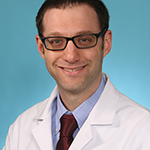 Michael A. Paley, MD, PhD, completed his residency and a rheumatology fellowship at the Washington University School of Medicine, St. Louis, where he received the Gregory J. Gurtner Internal Medicine Residency Research Award in 2015 and the Knowlton Incentive for Excellence Award in 2017.
Michael A. Paley, MD, PhD, completed his residency and a rheumatology fellowship at the Washington University School of Medicine, St. Louis, where he received the Gregory J. Gurtner Internal Medicine Residency Research Award in 2015 and the Knowlton Incentive for Excellence Award in 2017.
An instructor of medicine at Washington University School of Medicine, he blends his clinical and scientific training to identify basic mechanisms of ocular manifestations of rheumatologic disorders. By studying ocular disease, he hopes to provide a unique window into better understanding systemic inflammatory processes.
Dr. Paley obtained his MD and PhD in 2014 from the Perelman School of Medicine at the University of Pennsylvania, Philadelphia. While being mentored in graduate school by E. John Wherry, PhD, chair, Department of Systems Pharmacology and Translational Therapeutics, and Steve Reiner, MD, now the Charles H. Revson Professor of Microbiology & Immunology and Pediatrics and director of the Medical Scientist Training Program at Columbia University, New York, he discovered a passion for studying persistent inflammation after identifying key transcription factors that sustain chronic T cell responses.
In his postdoctoral work with Wayne Yokoyama, MD, the Sam J. and Audrey Loew Levin Professor of Medicine, Pathology and Immunology and director of the Medical Scientist Training Program at Washington University School of Medicine, Dr. Paley developed a biorepository for ocular and blood specimens of patients with uveitis to determine pathogenic cells present within the eye and their peripheral blood correlates.
In his clinical time, he works in a multidisciplinary clinic, in concert with ophthalmologists and his clinical mentor—Richard Brasington Jr., MD, professor of medicine at Washington University School of Medicine—to treat severe or refractory inflammatory eye disease. Together, with members of the Division of Rheumatology and Department of Ophthalmology, Dr. Paley leveraged this experience to design and implement an investigator-initiated pilot study for the treatment of infectious uveitis.
“I certainly would not be where I am today without a series of exceptional mentors,” he says.
Dr. Paley joined the ACR in 2016 and has attended several ACR/ARP Annual Meetings. Doing so helps keep him updated on cutting edge developments in the field and has enabled him to network with other physicians and role models.
“Their support and wisdom are irreplaceable,” says Dr. Paley. “To be able to pick their brain and be counted in that group of people is amazing. I’m deeply honored to receive this award.”
Meanwhile, Dr. Paley continues to develop his expertise in ocular inflammation within the rheumatology space. In the years ahead, he hopes to be a blended physician-scientist teaching trainees, running a research lab and treating patients. Through the ACR’s educational, mentoring and networking opportunities, he is optimistic about reaching his goal.
“This isn’t exactly an easy path,” he says. “But as I meet more physicians and scientists who generously decide to mentor folks like me, I hope to make a positive impact in our field and pay it forward.”
 Natalie Rosenwasser, MD, now an assistant professor at Seattle Children’s, joined the Hospital for Special Surgery, New York, in 2016 to pursue a fellowship in pediatric rheumatology, which she completed in June. She wasn’t even aware of the ACR until she attended an Annual Meeting as a first-year fellow. She says, “That’s when I realized there’s an international group dedicated to potentiating rheumatology.”
Natalie Rosenwasser, MD, now an assistant professor at Seattle Children’s, joined the Hospital for Special Surgery, New York, in 2016 to pursue a fellowship in pediatric rheumatology, which she completed in June. She wasn’t even aware of the ACR until she attended an Annual Meeting as a first-year fellow. She says, “That’s when I realized there’s an international group dedicated to potentiating rheumatology.”
In 2013, Dr. Rosenwasser graduated from St. George’s University School of Medicine, Grenada, West Indies, and completed her pediatrics residency in 2016 at Stony Brook Children’s Hospital, N.Y.
For the past two years, Dr. Rosenwasser has worked under the mentorship of Virginia Pascual, MD, founding director of the Gale and Ira Drukier Institute for Children’s Health at Weill Cornell Medicine, New York. Together, they investigated an unmet need in the field—the identification of urinary biomarkers to help diagnose, classify and follow lupus nephritis in children.
Dr. Rosenwasser made significant contributions to the study design, wrote and obtained Institutional Review Board approval and collected clinical samples from patients and controls. Although the lab had a long track record of profiling the blood transcriptome of children with inflammatory diseases, it had never before attempted to profile urine samples. Her initial results demonstrated that cell-associated transcripts can be detected in urine of patients with SLE with and without overt nephritis, but not in healthy controls. In subsequent studies, including longitudinal samples, her work revealed that urinary transcripts reflect the activity of inflammatory pathways known to be dysregulated in lupus plus additional ones that are less evident when using blood samples. Some of these transcripts appear associated with specific classes of lupus nephritis and disease activity. So far, results show the feasibility of this approach and open the door for non-invasive biomarker development and therapeutic target identification in lupus nephritis and perhaps inflammatory nephropathies beyond lupus.
Dr. Rosenwasser teamed up with statisticians and bioinformaticians to query the data and visually display it. This work has now been presented at the 2019 Childhood Arthritis and Rheumatology Research Alliance (CARRA) meeting, where she obtained the CARRA Hope Award for Basic Science, and was accepted for presentation at the Fall 2019 Immunology Symposium at Cornell University, Ithaca, N.Y., EULAR/PReS 2019 and the 2019 Fellow Research Meeting for the Hospital for Special Surgery.
Dr. Rosenwasser also received a CARRA-Arthritis Foundation 2019 PReS/EULAR Travel Award and secured funding for her research through a CARRA Fellow Small Grant from the Arthritis Foundation and CARRA.



